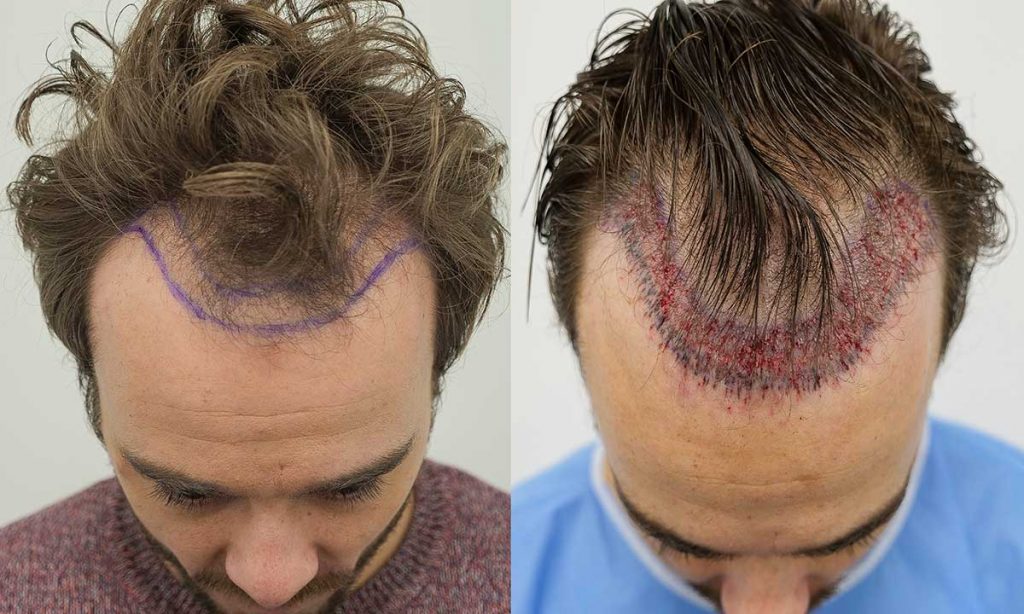5 Ways That A Poor Diet Can Affect Your Hair
Apr 30, 2021 23:09
Having a healthy head of hair isn’t just about using the right products and laying off heat styling, the makings of healthy hair start from within.
Eating a poor diet may be the reason why you can’t quite seem to get your hair to the state that you like it.

Below, we will cover some of the most common diet mistakes that people make that may lead to unhealthy hair, or cause slow growth or excessive shedding.
1. Not getting enough essential nutrients can lead to hair loss
If your diet is not doing a good job of giving your body and hair follicles an adequate amount of vitamin D, Iron, or Zinc, your growth may be suffering because of it.
Deficiencies in these key nutrients have been tied to slowed growth or hair shedding, so staying on top of your nutrient intake is important.
Vegans or vegetarians may have to keep an extra close eye on food with Iron and vitamin D to make sure they are getting enough, or they may need to supplement their diet with some vitamins.
For women who are in their menstruating years, they are more prone to low iron due to their monthly blood losses.
Have a blood panel test done at your doctor’s office to identify and correct any deficiencies before they take a toll on your hair.
2. Too much Vitamin A may cause excessive shedding
For some vitamins, there can be too much of a good thing.
Most vitamins are water-soluble, and will wash out through your urine if there is an excess, but with vitamins like D, A, K, and E, they are fat-soluble and you can have too much.
Specifically, too much vitamin A has been linked to excess hair shedding, so try to not go overboard on supplementing vitamin A and keep your consumption of high vitamin A foods in a normal range.
Foods which are very high in vitamin A include: beef and lamb liver, plus certain fish like mackerel, salmon, and tuna.
You want to still make sure to get normal levels of this vitamin, of course, as it can help support hair, skin, and nail health -- just don’t go chomping down on liver every day.
3. Too much caloric restriction can slow hair growth
Your body needs a certain amount of daily calories to keep up with its regular functions, including hair growth.
So, if you are trying out a new very-restrictive diet, a regular caloric deficit may mean that your body is keeping that energy for more essential functions, and letting your hair health fall to the wayside.
If you are eating a slight deficit in order to get to a healthy weight, take it slowly, and try to not lose more than 1-2 pounds per week to make sure you don’t accidentally lose your hair as well.
4. Not enough protein in your diet may lead to shedding
Protein is the main building block of your hair, so if you aren’t eating enough of it, your follicles may slow their growth or revert to a shedding phase.
Calculate your daily recommended protein intake and make sure to stick with it.
If you are switching over to a plant-based diet, don’t only remove meat from your menu, be sure to also add in plant-based sources of protein like beans, tofu, nuts, and seeds, to replace the protein and meet your daily requirements.
5. Insulin resistance can cause hair loss
Too much sugar isn’t just bad for your waistline, too much sugar over a long period of time and lead to insulin resistance or type 2 diabetes, which can affect your hair.
Insulin resistance can increase the inflammation in your body, including your scalp, and changes in your endocrine system can lead to slowed hair growth or increased shedding of hair.
Take care of your body and your hair by keeping too much sugar out of your diet, and avoiding glucose spikes which can lead to insulin resistance over time.
How to correct a poor diet and improve hair health
If some of these poor diet habits sound like your current eating pattern, it is not too late to start making some changes.
Include plenty of nutrients and protein-dense foods in your diet, skip on the sugar, and don’t cut your calories too drastically to help improve your hair.
In the meantime, you can also talk to your doctor about medications to help improve your current growth and maintain the hair that you have with medications like Finasteride or Minoxidil.
Over time, with a healthier diet and any necessary treatments, your hair is likely to return to optimal health.
Jill Barat
Jill Barat, is a Doctor of Pharmacy at Strut Health with a unique background in specialty pharmacy, innovative compounding products, supplements, and integrative medicine with a passion for helping patients live their best lives.







































































